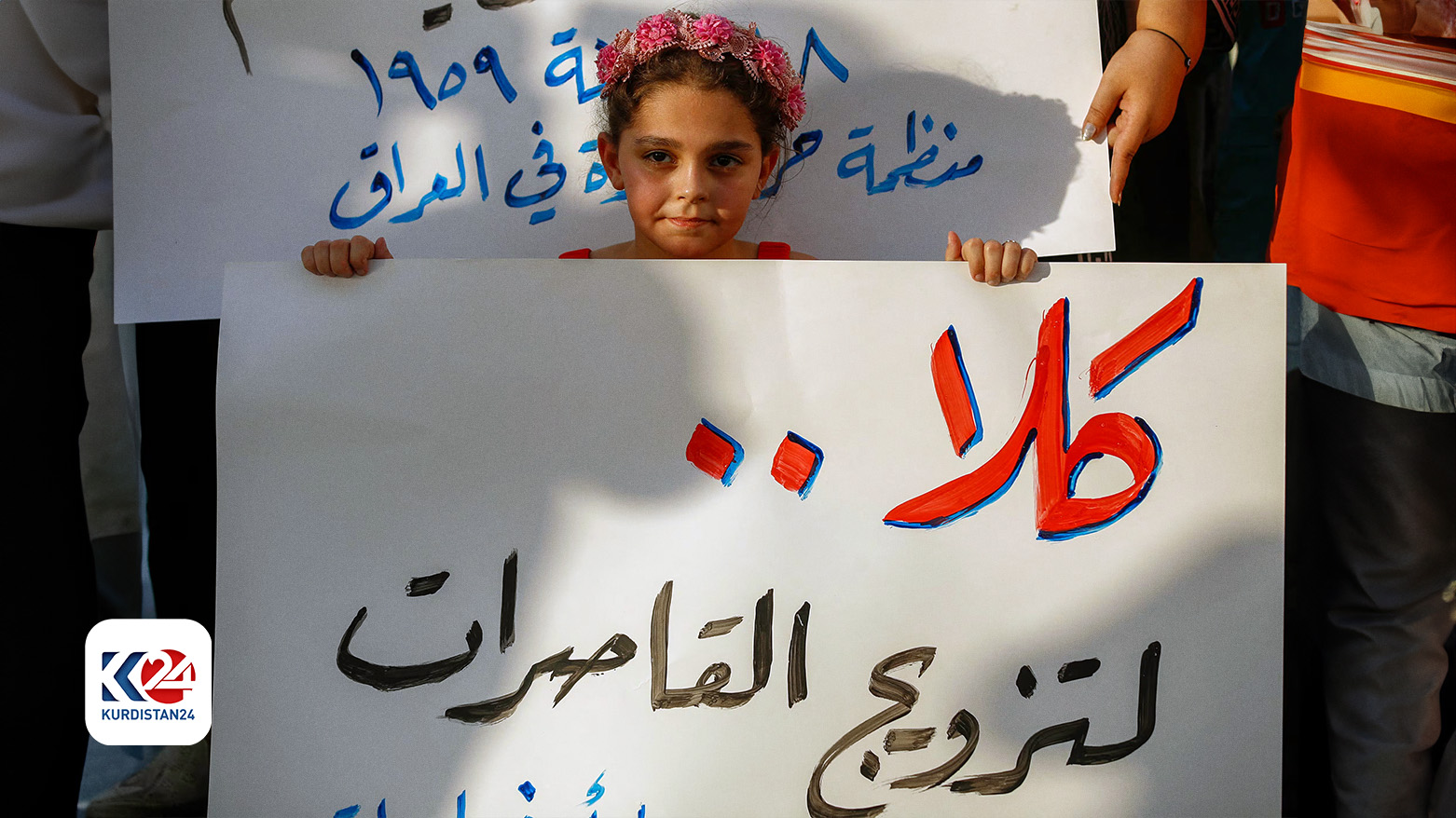Iraq's Personal Status 'Law' or a new 'Low': Global Outcry Intensifies
The international community warns that adopting these amendments would significantly regress women’s rights and harm Iraq's global standing and international relations.

ERBIL (Kurdistan24) – A firestorm of international criticism has erupted over Iraq’s proposed amendments to the Personal Status Law, with rights groups warning that the changes will drastically undermine women’s and girls’ rights.
On Oct. 10, 2024, the European Union (EU) Parliament passed a resolution condemning the amendments, joining the chorus of activists and organizations, including Amnesty International, in urging Iraq’s lawmakers to reject the legislation.
The proposed amendments to Law 188/1959 have drawn sharp rebukes for rolling back key protections.
If enacted, they would place family matters, such as marriage, divorce, and child custody, under the authority of religious courts, further entrenching disparities between religious groups.
Among the most concerning changes is the lowering of the legal marriage age for girls to as young as nine years old, with boys allowed to marry at 15. This alarming shift threatens to reverse decades of progress on women’s rights in Iraq.
Widespread Global Condemnation
Amnesty International has called the amendments devastating step backwards for gender equality in Iraq.
“Iraqi lawmakers must heed to the warnings of civil society and women’s rights groups on the devastating impact of these amendments," said Razaw Salihy, Amnesty International’s Iraq researcher.
"Child marriage not only deprives girls of their education, but it also makes them more vulnerable to sexual and physical abuse, as well as serious health risks linked to early pregnancies," she added.
According to the EU Parliament, the changes not only violate Iraq’s international obligations. Including the UN Convention on the Elimination of All Forms of Discrimination Against Women (CEDAW), but also increase the risk of human trafficking and exploitation, especially for young orphans and girls from low-income families.
A poll by the Iraqi Polling Team (IPT) shows that 73% of Iraqis strongly oppose the proposed changes.
Both Amnesty International and the EU Parliament stress that the amendments would undermine equal protection under the law, a core principle enshrined in Iraq’s constitution.
Furthermore, they argue that Iraq’s legal frameworks still suffer from severe gaps, with existing laws permitting honor killings, allowing corporal punishment by husbands, and failing to criminalize marital rape.
These, critics contend, are the real issues that should be addressed, rather than dismantling the limited protections women and girls currently have.
Grave Threat to Equal Rights
The Potential for child marriage is just one dimension of the problem.
Under the proposed law, religious councils from Sunni and Shia sects would be empowered to create their own “code of Sharia rulings”, within six months of the law’s passing.
This would not only foster unequal legal systems within Iraq but could also lead to a spike in unregistered marriages, bypassing legal protections and further exposing young girls to exploitation.
Amnesty International’s Salihy warned that the amendments violate Iraq’s obligations under CEDAW and the Convention on the Rights of the Child (CRC).
The European Parliament echoed these concerns, underscoring the broader risks to religious minorities in Iraq.
The draft amendments would radicalize the application of the Sharia Law, alienating the country’s Christian, Yezidi, and other ethnic and religious communities.
Furthermore, these amendments would mean the elimination of penalties for men who engage in child marriages and weaken protections for divorced women, such as their right to remain in the marital home or receive financial support.
A History of ‘Résistance’
The current outcry mirrors previous attempts to pass similar amendments, which failed due to overwhelming public opposition in 2014 and 2017.
The debate resurfaced in Sept. 2024 when Iraq’s parliament attempted to hold a second reading of the bill.
Opposition MPs boycotted the proceedings, temporarily halting progress. However, the amendments cleared a major hurdle when Iraq’s Supreme Court ruled in favor of their constitutionality.
On the streets of Iraq, protests by women’s rights groups continue, demanding that the government prioritize protecting women and girls rather than stripping away their legal protections.
NGOs, civil society members, and international organizations alike are calling for an immediate rejection of these amendments, fearing that if they pass, they will signal a dark future for gender equality in Iraq.
With a parliamentary vote looming, the international community remains vigilant, warning that the adoption of these amendments would only mark a significant regression in women’s rights but also severely tarnish Iraq’s global standing and future relations with international partners.